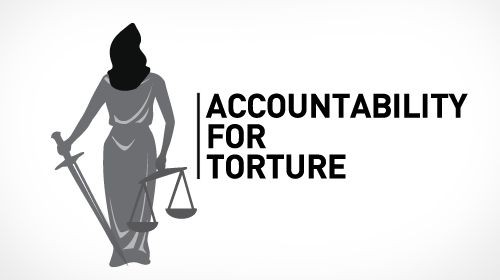ACLU in Court Wednesday to Challenge FBI Agents’ Unlawful Detention and Abuse of American Abroad
New Jersey Man Held for Four Months in East Africa, Threatened With Torture and Disappearance
December 10, 2013
FOR IMMEDIATE RELEASE
CONTACT: 212-549-2666, media@aclu.org
WASHINGTON – The American Civil Liberties Union will appear in court on Wednesday on behalf of a U.S. citizen who was illegally detained and mistreated by American officials in three east African countries in 2007. After fleeing unrest in Somalia, New Jersey resident Amir Meshal was arrested, secretly imprisoned in inhumane conditions, and harshly interrogated by FBI agents over 30 times before ultimately being released without charge four months later.
The ACLU argues that Meshal’s treatment violated his Fourth and Fifth Amendment rights to a judicial hearing and the prohibition against torture under U.S. law. The government’s motion to dismiss the case was first argued in July 2011, and the court has ordered a second argument to address the impact of four appeals court decisions issued since then. The government argues that the case should not be considered on its merits because it relates to national security, even though it would leave Meshal with no legal remedy.
"The harsh treatment and mental anguish this man suffered should never be experienced by anyone, let alone an American citizen at the hands of his own government," said Jonathan Hafetz, cooperating attorney with the ACLU, who will argue in court Wednesday. "When an American’s constitutional rights are violated by law enforcement officials, courts must hold them accountable."
In December 2006, Meshal was studying in Mogadishu when civil unrest broke out. He fled to neighboring Kenya, where he wandered in the forest for three weeks seeking shelter and assistance before being arrested. He was then repeatedly interrogated by FBI agents, who accused him of receiving training from al Qaeda, which Meshal denied. The American interrogators threatened him with torture and kept him from contacting a lawyer or his family.
Meshal was subsequently rendered to Somalia and then Ethiopia, where he was secretly imprisoned in filthy conditions with inadequate access to food, water, and toilets for more than three months, and again harshly interrogated by U.S. officials, who bore responsibility for his rendition and continued detention.
"The government’s argument that FBI agents should bear no responsibility for subjecting Mr. Meshal to unlawful detention and harsh abuse while he was at their mercy is extreme and untenable," said Hina Shamsi, director of the ACLU’s National Security Project. "We hope the judge will reject what amounts to a request for immunity when law enforcement officials violate Americans’ constitutional rights abroad."


